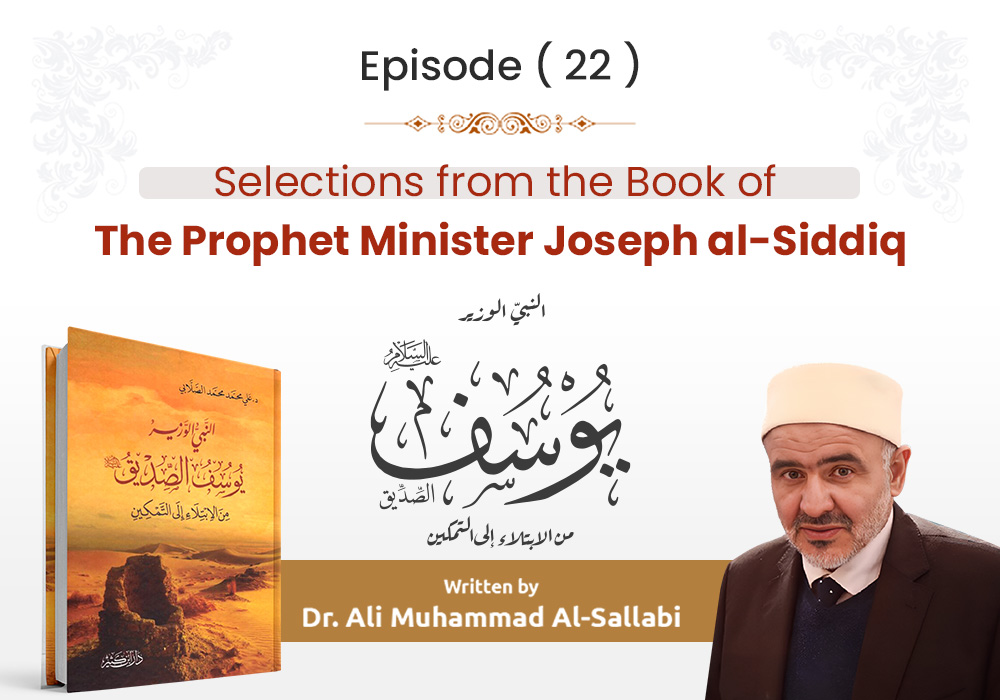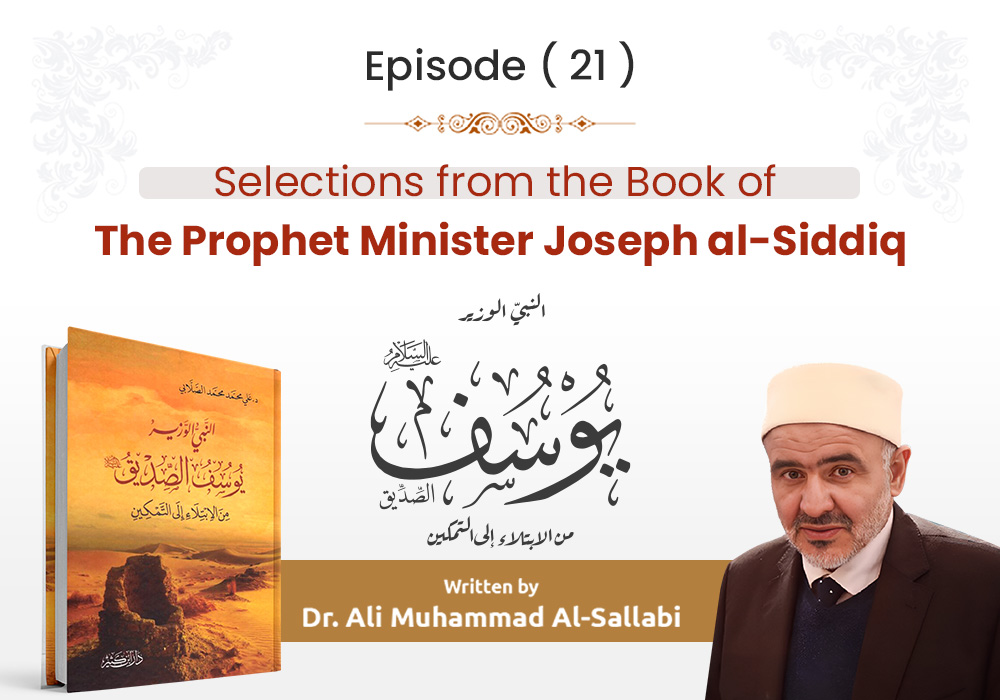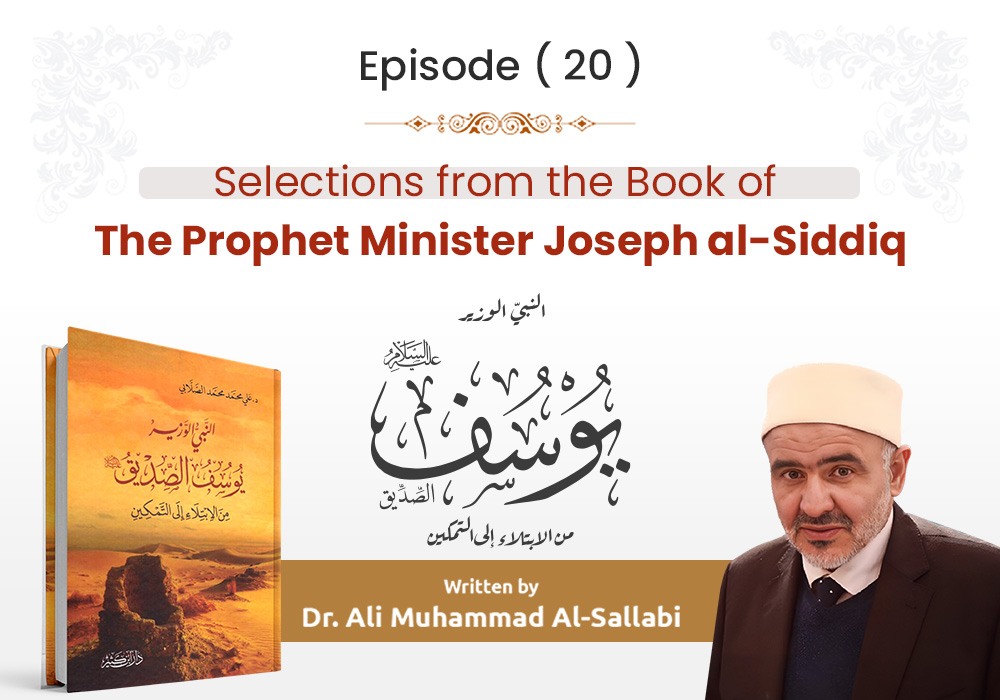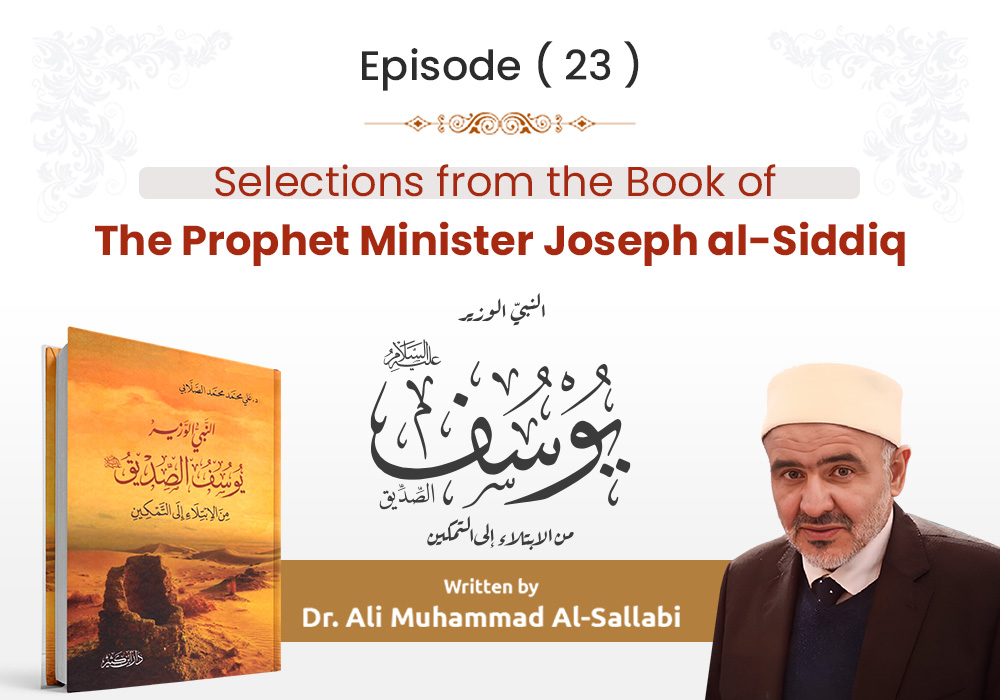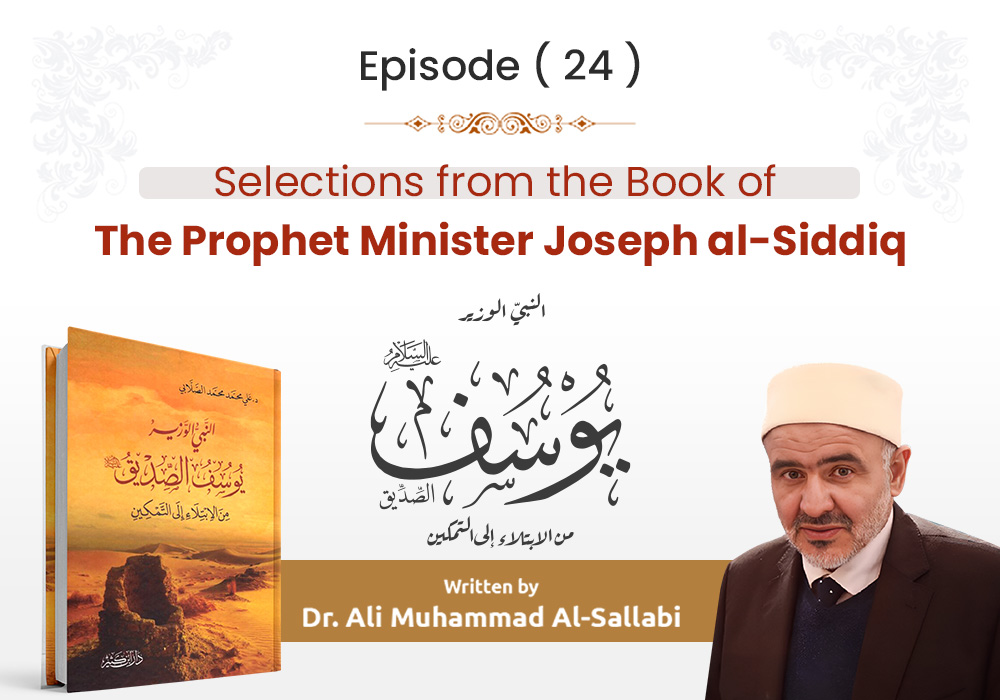Selections from the Book The Prophet Minister Joseph al-Siddiq…
Written by Dr. Ali Muhammad al-Sallabi...
Episode (22)
For the envious, their evil eye has a negative and harmful impact on the envied, as decreed by Allah. This has been established by unequivocal texts and numerous tangible evidences. Almighty Allah says: {And indeed, those who disbelieve would almost make you slip with their eyes [i.e., looks] when they hear the message, and they say, "Indeed, he is mad" (51) But it is not except a reminder to the worlds (52)} [Al-Qalam: 51, 52]
The Prophet Muhammad (may Allah bless him and grant him peace) said: ''The Evil Eye is a reality''. He also said: ''The evil eye is genuine If anything could get ahead of the decree the evil eye would do so. And when you are asked to bathe do so''.
Aisha (may Allah be pleased with her) said: ''The man casting evil would be commanded to perform ablution, and then the man affected was washed with it''.
She also said: ''When Allah's Messenger (peace and blessings be upon him) fell ill, Gabriel used to recite this: "In the name of Allah, may He cure you from all kinds of illnesses and safeguard you from the evil of an envier when he envies and from the evil influence of eye''.
Indeed, there is a hidden aspect in humans that is influenced and influences others. Surah Yusuf consistently emphasizes this aspect. Dreams, as mentioned in the surah, indicate its existence and suggest the human susceptibility to external influences. Revelation and its knowledge affirm this reality and make it a tangible truth. The envious eye also suggests the potential for a person to be influenced by others, by the will and decree of Allah.
Indeed, Almighty Allah has taught us to seek refuge in Him from envy, as He, in His infinite wisdom, knows that envy is something beyond human control. He says: {Say, "I seek refuge in the Lord of daybreak (1) From the evil of that which He created (2) And from the evil of darkness when it settles (3) And from the evil of the blowers in knots (4) And from the evil of an envier when he envies" (5)} [Al-Falaq: 1-5].
The late Sheikh Mohammed Mutawally Al-Shaarawy (may Allah have mercy on him) said: "In the matter of envy, you cannot seek refuge in someone equal to you, because envy comes from an unknown and imperceptible source. The rays emitted from the eye may be fueled by resentment towards anyone blessed with favors. In our era, characterized by material advancements, we have reached the point of using radiation to disintegrate things. Therefore, envy could be likened to such radiation, which Allah may place in the eyes of some of His creation, turning the gaze into a penetrating arrow or a lethal bullet. The servant can seek refuge in Allah, The Creator of humans and all secrets, by reciting: {Say, "I seek refuge in the Lord of daybreak"} [Al-Falaq: 1]
The Prophet (May peace be upon him) used to seek refuge in Allah for al-Hasan and al-husain, saying: ''I seek refuge for both of you in the perfect words of Allah from every devil and every poisonous thing and from the evil eye which influences''. He would then say; ''your father sought refuge in Allah by them for Ismail and Ishaq''. And when anything distressed the Prophet he prayed.
Here, it is incumbent upon humans to turn to Allah, as He is the ultimate refuge after you have taken the means provided to you by the hand of Allah. Thus, your journey towards The Truth is akin to the journey of the distressed, not that of the lazy who neglects taking the means. Allah, the Exalted, says: {Is He [not best] who responds to the desperate one when he calls upon Him and removes evil and makes you inheritors of the earth?1 Is there a deity with Allah? Little do you remember} [An-Naml: 62].
The distressed person is the one who has exhausted all possible means and turns to his Lord only after having utilized all available resources provided to him by Allah. Therefore, do not seek from Allah until you have utilized what He has offered you from the means at your disposal.
Here, in this verse, you find Jacob (peace be upon him) advising his sons not to enter Egypt through one gate but through separate gates, fearing envy. This reflects the requirement of faith, which entails submission to the will of Allah. {and I cannot avail you against [the decree of] Allah at all} [Yusuf: 67] means: My caution here does not render you independent of Allah's decree. It is merely a precaution. The benefit from this caution and planning is ultimately in the hands of Allah. All creation is subject to Him, and upon Him Jacob relies, as does every believer.
And Al-Qurtubi, may Allah have mercy on him, said: It is obligatory for every Muslim who admires something to say: 'Blessed is Allah, the best of creators, O Allah, bless it'.
- Ali Muhammad al-Sallabi, The Prophet Minister Joseph al-Siddiq, pp. 454-457.
- Objective Interpretation, (4/206).
- Tafsir Al-Shaarawi, (11/7018).
- Contemplation and clarification in the interpretation of the Qur’an, (16/260).
For further information and review of the sources for the article, see:
The Book of The Prophet Minister Joseph al-Siddiq on the official website of Sheikh Dr. Ali Muhammad al-Sallabi:


